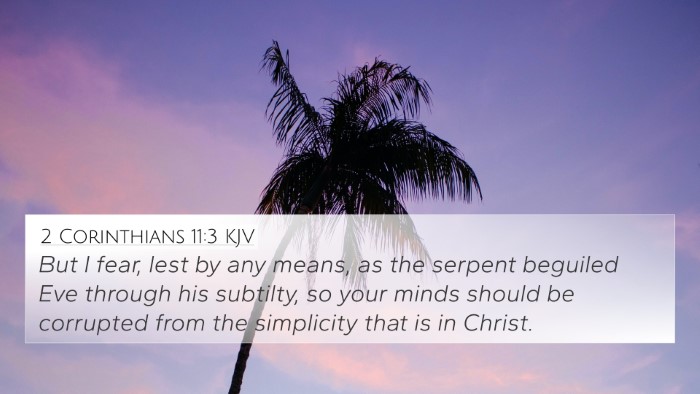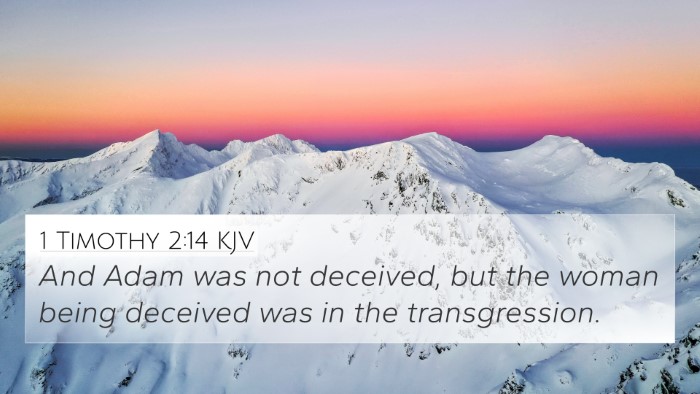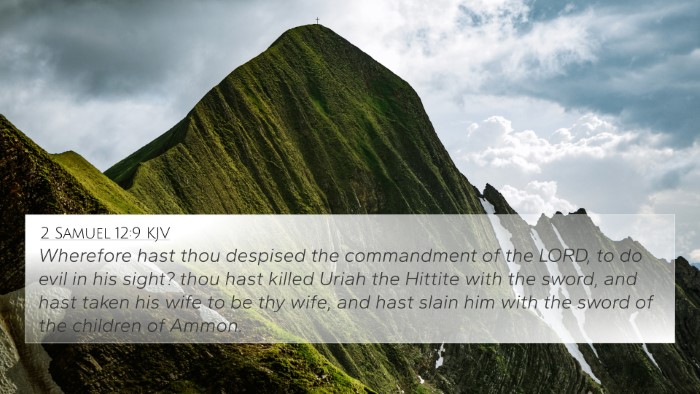Understanding Genesis 3:13
Genesis 3:13 states: "And the Lord God said unto the woman, What is this that thou hast done? And the woman said, The serpent beguiled me, and I did eat." This verse represents a crucial moment in the biblical narrative, reflecting on the consequences of sin and the dynamics of temptation and responsibility.
Commentary Insights
This verse illustrates the dialogue between God and Eve, highlighting the shift in accountability and the introduction of sin into human experience. Below are some key points derived from public domain commentaries:
- Matthew Henry: He emphasizes that Eve's response is indicative of human nature's tendency to deflect blame. Instead of accepting full responsibility for her actions, she points to the serpent, admitting that she was deceived.
- Albert Barnes: Barnes notes that God's question to Eve is crucial; it seeks to bring forth a confession rather than a mere acknowledgment of guilt. The act of questioning reveals God's desire for relationship and repentance.
- Adam Clarke: Clarke elaborates on the serpent's role in Eve's sin. He indicates that the serpent represents a source of temptation that plays on human weaknesses, revealing the need for vigilance against deceit.
Thematic Connections
Genesis 3:13 serves as a key verse for understanding the nature of sin and temptation in the Bible. Here are several thematic Bible verse connections:
- James 1:14-15: "But each person is tempted when he is lured and enticed by his own desire." This reflects the internal struggle similar to Eve's experience.
- Romans 5:12: "Therefore, just as sin came into the world through one man, and death through sin, and so death spread to all men because all sinned." This verse connects to the doctrine of original sin, initiated by Eve's actions.
- 1 John 3:8: "The reason the Son of God appeared was to destroy the works of the devil." This verse links the serpent's deception in Genesis to the redemptive work of Christ.
- Proverbs 4:23: "Keep your heart with all vigilance, for from it flow the springs of life." This emphasizes the necessity of guarding against deception like that which Eve faced.
- Exodus 20:3: "You shall have no other gods before me." This commandment highlights the importance of loyalty to God, foreshadowed by Eve's unfaithfulness.
- Galatians 6:7: "Do not be deceived: God is not mocked, for whatever one sows, that will he also reap." This aligns with the concept of consequences stemming from Eve's choice.
- John 8:44: "You belong to your father, the devil, and you want to carry out your father's desires." This indicates the enduring impact of the serpent's deceit throughout scripture.
Cross-Referencing Biblical Texts
To fully grasp the significance of Genesis 3:13, it’s beneficial to utilize tools for Bible cross-referencing. Here are helpful resources:
- Bible Concordance
- Bible Cross-reference Guide
- Cross-reference Bible Study
- Bible Cross-reference System
- Bible Chain References
Conclusion
In summary, Genesis 3:13 is an essential verse that opens a dialogue about temptation, blame, and accountability. It is intertwined with numerous other scriptures that provide a deeper understanding of sin and its consequences in both the Old and New Testaments. For those studying this pivotal verse, exploring inter-biblical dialogue through cross-references enhances clarity and enriches the study of scripture.











